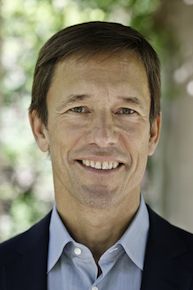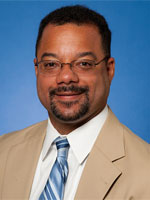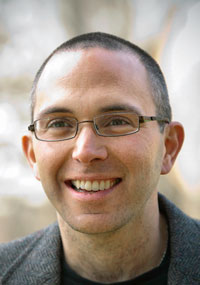Aired on 9/14/2015
What is the role of nature in cities? How can business and government leaders align environmental stewardship with economic growth?
On September 14, the Institute for International Economic Policy at The George Washington University hosted a panel of experts to answer these questions at a live, in-person webcast at the Elliott School of International Affairs.
The participants included Mark Tercek, President and CEO of The Nature Conservancy; Rob McDonald, Senior Scientist for Sustainable Land Use at The Nature Conservancy; and Led by Marcus King, Director of the Elliot School’s Master of Arts at in International Affairs Program at GW
The panel discussed how public and private sector leaders can use natural resources to both impact the bottom line and benefit society, and how ecosystem services and natural infrastructure can enhance cities and neighborhoods. With their combined expertise from the fields of environmental conservation, economics, international politics, and corporate finance, they will challenge conventional thinking about the importance of environmental resources and economics as key tools in creating a sustainable world.
Meet the Panel

Mark Tercek is president and CEO of The Nature Conservancy, the global conservation organization known for its intense focus on collaboration and getting things done for the benefit of people and nature. He is the author of the Washington Post and Publishers Weekly bestselling book Nature’s Fortune: How Business and Society Thrive by Investing in Nature. In 2012, Tercek was appointed by New York Governor Andrew Cuomo to serve on the New York State 2100 Commission, which was created in the wake of Superstorm Sandy to advise the governor and the state on how to make the state’s infrastructure more resilient to future storms. Tercek is also a member of several boards and councils, including Resources for the Future and the Nicholas Institute for Environmental Policy Solutions. He is also a member of the Council on Foreign Relations. Tercek earned an M.B.A. from Harvard in 1984 and a B.A. from Williams College in 1979.

Dr. Marcus D. King is John O. Rankin Associate Professor of International Affairs and Director of the Elliott School’s Master of Arts in International Affairs Program. King previously served as Director of Research and Associate Research Professor. As Director of Research, he supported the Elliott School’s research enterprise, including eight research institutes, through building contacts with external partners, and developing multi-investigator projects. Dr. King joined the Elliott School from the CNA Corporation (Center for Naval Analyses), where he served as Project Director and Research Analyst. At CNA, Dr. King led research projects on topics including global climate change and national security, state stability, adaptation to climate change, and Defense Department energy policy. Dr. King organized the Military Advisory Board, a group of former flag and general officers constituted to advise CNA on energy, climate, and security issues.

Dr. Robert McDonald is Senior Scientist for Sustainable Land Use at The Nature Conservancy, where he is lead scientist for the organization’s efforts to figure out how to make cities more sustainable. He holds a Ph.D. in Ecology from Duke University, and has published more than 30 peer-reviewed publications, many of them on the science of how cities impact and depend on the environment. He is author of Conservation for Cities: How to Plan and Build Natural Infrastructure (published by Island Press), blogs for The Nature Conservancy’s Cool Green Science blog and has published two recent essays on urban/environment interactions in a collection called Taking Sides: Clashing Views in Global Issues (McGraw-Hill) and in The Chronicle of Higher Education
Hosted by:

